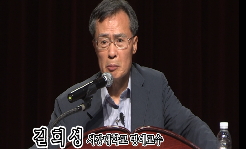This paper aims to explore the basic spirit of Yulgok's philosophical practice and, especially, to deeply examine its philosophical meaning by focusing on the dialectical matter of enlightenment education. The practical thinking of Yulgok's philosophy...
http://chineseinput.net/에서 pinyin(병음)방식으로 중국어를 변환할 수 있습니다.
변환된 중국어를 복사하여 사용하시면 됩니다.
- 中文 을 입력하시려면 zhongwen을 입력하시고 space를누르시면됩니다.
- 北京 을 입력하시려면 beijing을 입력하시고 space를 누르시면 됩니다.

율곡의 철학실천 정신과 계몽교육의 변증법 = Yulgok's Spirit of Philosophical Practice and Dialectics of Enlightenment Education
한글로보기부가정보
다국어 초록 (Multilingual Abstract)
This paper aims to explore the basic spirit of Yulgok's philosophical practice and, especially, to deeply examine its philosophical meaning by focusing on the dialectical matter of enlightenment education. The practical thinking of Yulgok's philosophy has the characteristic of understanding the categories of Self-Cultivation (修己) and Governing Others (治人) as complementary and communicating them harmoniously. Yulgok emphasized the integrated practice of Self-Cultivation and Governing Others, and advocated Practical Principles (實理) as its philosophical basis. And this leads directly to the realization of Trying to be Practical (務實), the core spirit of Yulgok's philosophy. Yulgok's Trying to be Practical (務實) is completed through the negation of Non-Practicality (無實). This philosophical thought of Yulgok has some similarities with the dialectical thinking of negation of Western critical theorists. This article focuses on these characteristics of Yulgok's philosophy and, in particular, on the dialectical thinking of enlightenment education, seeks to explore the significance of Yulgok's philosophy within a new paradigm. Yulgok viewed the primitive state before historical enlightenment as an era of delusion and ignorance, and emphasized the importance of true enlightenment through the political education and philosophical practice of saints. In the process, Yulgok pointed out the limitations of reality in which the reason emphasized for enlightenment was transformed into instrumental reason, and furthermore, this instrumental reason was transformed into barbaric reason, and eventually, the blind identity system such as irrational collective intelligence and racialism was strengthened and turned violent. He also pointed out the problems of rationalistic reason while critically mentioning the phenomenon of returning to mythological reason, such as shamanism and ghost worship. In short, Yulgok proposed a new enlightenment that asserts the enlightenment of enlightenment, that is, the negativity of enlightenment, and seeks to break down the mythologization of enlightenment. Yulgok's philosophical and practical problem awareness is still valid today, and its applicability is considered to be very high.
동일학술지(권/호) 다른 논문
-
근대기 청원ㆍ보은지역 함종어씨가의 도학정신 및 현실 대응
- (사)율곡학회
- 김문준
- 2025
- KCI등재
-
기호유학의 여성친화적 철학과 현대사회 갈등 해법(Ⅰ) - 여성 성리학자 임윤지당, 이사주당, 강정일당을 중심으로
- (사)율곡학회
- 이영자
- 2025
- KCI등재
-
관산(管山) 안정회(安貞晦): 잊혀진 노사문인을 찾아서 - 『관산유고(管山遺稿)』를 중심으로
- (사)율곡학회
- 이향준
- 2025
- KCI등재
-
율곡철학 기반의 웰에이징 철학교육 필요성 - 철학실천적 웰에이징 철학교육 프로그램 연구
- (사)율곡학회
- 황정희
- 2025
- KCI등재




 KCI
KCI KISS
KISS






